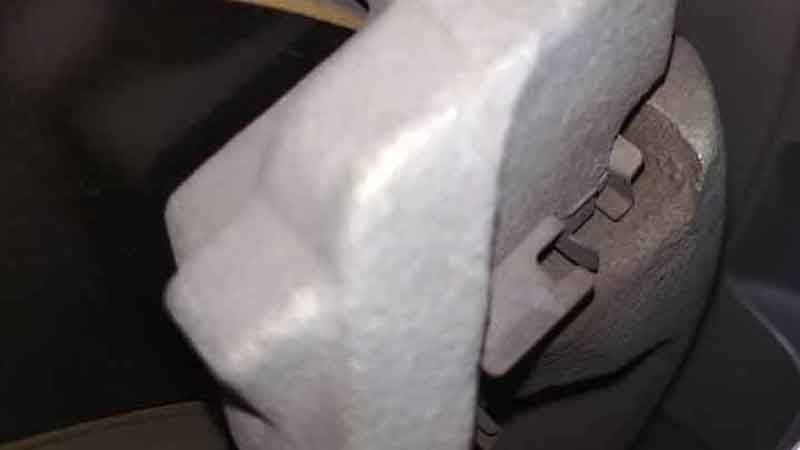
Vehicles that have a brake drum system use a brake shoe to create friction against the interior of a brake drum. This is the equivalent of a brake pad creating friction against a brake disc within a brake disc system. The result of which is the vehicle slowing down because of the friction created in the system.
Each time you step on the brake pedal to slow down the vehicle, it causes the brake shoes to wear down a little bit. The more you drive your vehicle, the more worn the brake shoes become. This ultimately affects the level of thickness of the brake shoes. If the rim of the brake shoes gets too thin, then it could damage the interior of your brake drum system. Worst of all, it’ll prevent you from slowing down your vehicle quickly as you step on the brake pedal.
Every brake shoe manufacturer will have its own recommendation for the minimum amount of thickness that a brake shoe should have. While some manufacturers may recommend a minimum thickness of 1.5 millimeters, most auto mechanics will recommend 3.0 millimeters instead. It is better to be safe than it is to be sorry, which is why you shouldn’t wait for your brake shoes to get down to 1.5 millimeters. When you see the thickness level between 2.0 and 3.0 millimeters, that is when you need to get your brake shoes replaced immediately.
Of course, you probably aren’t going to measure the thickness of your brake shoes very often. But you’ll know when something is wrong with them because the signs will be overwhelming. The first signs you’ll notice are strange sounds coming from the brake shoes after you step on the brake pedal. It’ll be almost like a scraping or squeaking sound. This will be following be a slow brake response time as well.
Read also:
- Clogged/Leak Car Radiator: Repair vs Replacement Cost Comparison
- Tie Rods and Tie Rod Ends Replacement Cost in Your Car
- Bad Car Flywheel: Skimming VS Replace Cost Comparison
- Recommended and Minimum Brake Pad Thickness in Your Car
These two symptoms should be enough to prompt you to have your brake system inspected. But if you continue to let the symptoms continue unresolved, then your parking brake may turn loose. Then you won’t be able to park your vehicle without it potentially rolling away. So, it is advised that you replace the brake shoes when the thickness gets to under 3.0 millimeters.


